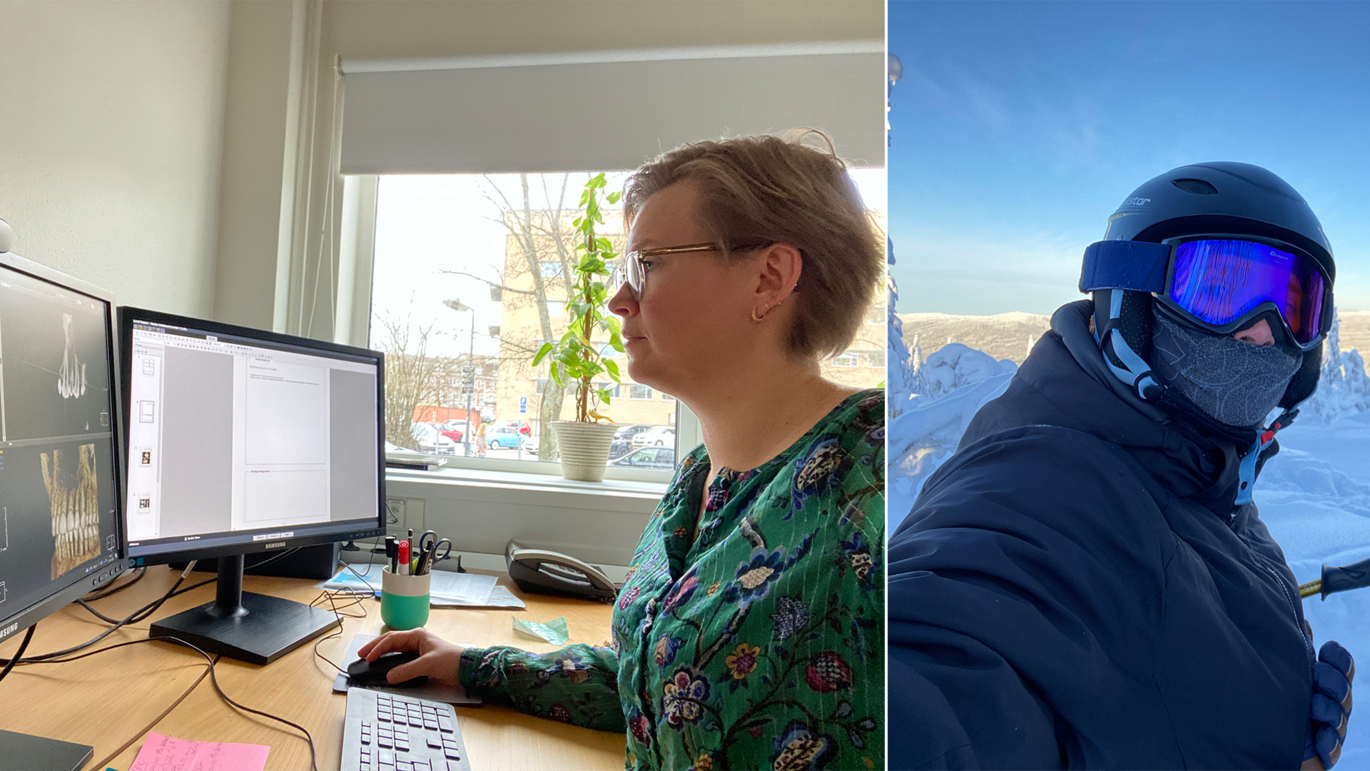Louise Hauge Matzen: “My mentor has really cleared some paths for me”
The road from PhD to professor is not a calmly meandering one – in fact, it’s full of career potholes and family-life bumps. Every month, a researcher talks about how they navigate life as an academic staff member at Health. Meet associate professor Louise Hauge Matzen of the Department of Dentistry and Oral Health.

FACT BOX
- Name: Louise Hauge Matzen
- Age: 42
- Title and affiliation: PhD, associate professor and head of section for Oral Radiology and Endodontics at the Department of Dentistry and Oral Health
- Research area: Oral radiology and diagnostic methods
- Residence: In Løsning, between Horsens and Vejle
- Family: Married to Steffen, who is a project manager in a company that distributes spare parts for cars. Together they have two children, aged 13 and 16.
My personal life has never got in the way of my working life, because it’s always been my first priority. I always have, and always will, put my personal life first. I had my first child while I was a dental student. I had to work efficiently, because I didn’t have unlimited time. I adapted my studies to the family rhythm, so I studied while our daughter was in the crèche or taking her midday nap. I became good at scheduling everything that was work-related, and I’ve continued to take that approach in my working life, even though the children are now teenagers and I have a more normal 8:00 am - 4:00 pm working day.
When one week ends, I prepare for the next one. I create an overview of my tasks in teaching, assignments and meetings, and I also mark out time in the calendar for preparation. Planning and scheduling works well for me. Things don’t take me by surprise, and it gives me peace of mind.
I had my second child while I was studying for my PhD. That was tough. He suffered from a huge number of infectious diseases, and during the first six months I was back at work after my maternity leave, there wasn’t a single week in which I didn’t have to take a child’s sick day. But the PhD degree programme has a fixed framework and sharp deadlines, so I just had to catch up on the work at other times. No one is going to take over the work for you while you’re away: It’s sitting there waiting for you, and you’ll be twice as busy when you come back. At the university, a sick day is never a real sick day.
I’ve achieved the goals that I set. No one has done it for me – but I’ve had good conditions. For example, I’m part of a section that has good collaboration and team spirit, where we acknowledge each other’s skills. That creates a good working environment. I was also lucky that the grandparents could lend a hand when the children were small and there was more pressure. And my husband has learned to understand the university world along the way. He works in a completely different industry.
Professor Ann Wenzel has played a huge role in my career. She was head of section before I took over the post a few months ago, and she has been my supervisor and mentor since I started as a PhD student. She is incredibly talented and committed, and she’s been a phenomenal supervisor and mentor, with lofty ambitions for her co-workers. She has really cleared some paths for me and other early-career researchers.
I play football and volunteer on the board of our local football club. I believe it’s important to do something completely different from family and work, i.e. to have a leisure interest. It creates some good energy.
It is always the research that suffers. I think many academic staff members would agree on that. I am not very good at saying no to things, and there are a great many “must-dos” that cannot be postponed – students that are waiting for a lecture or for teaching in the clinical work. It’s easier to put off the research.
Sometimes it’s scary to think about how the world of research is structured. That the university’s finances are tied up in such a large amount of external funding. It’s a tough world. The university’s strategic frameworks sometimes also get in the way of the work on the floor. There’s a lot of areas we need to address and implement – internationalisation and digitisation, to mention just a couple of them. Everyone works hard. And a lot. But do we even feel that we reach our goals and do it well enough? In this area, the university is not very different from private companies. Those are the conditions, but it would be easier if they were different.
It’s fun to do research, and I really enjoy teaching. Very much indeed. Just imagine that ordinary little me could be good enough to make my mark in oral radiology research, and that I can help to train the dentists of the future. I feel privileged.
Other portraits
- Christian Kanstrup Holm: "Foundations like the beaten path. But I have prioritised a different one"